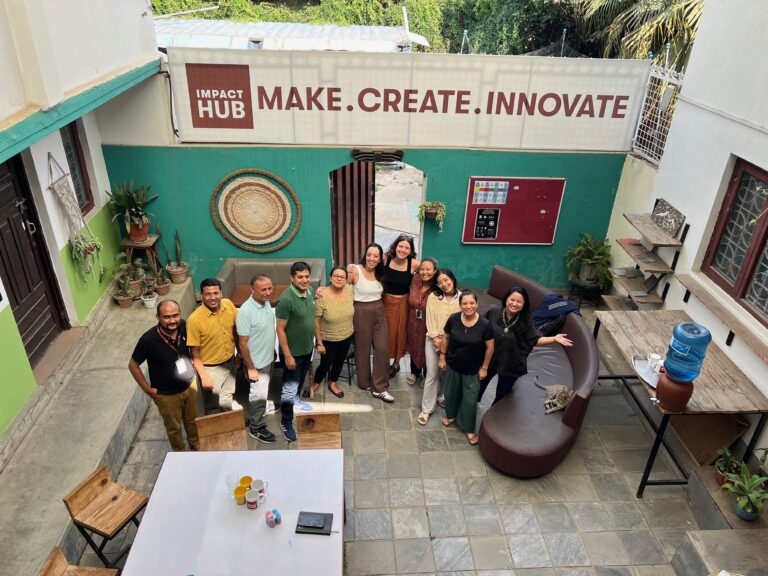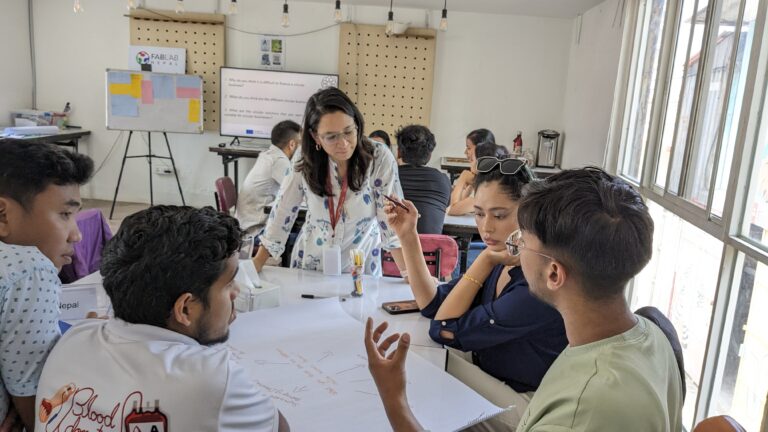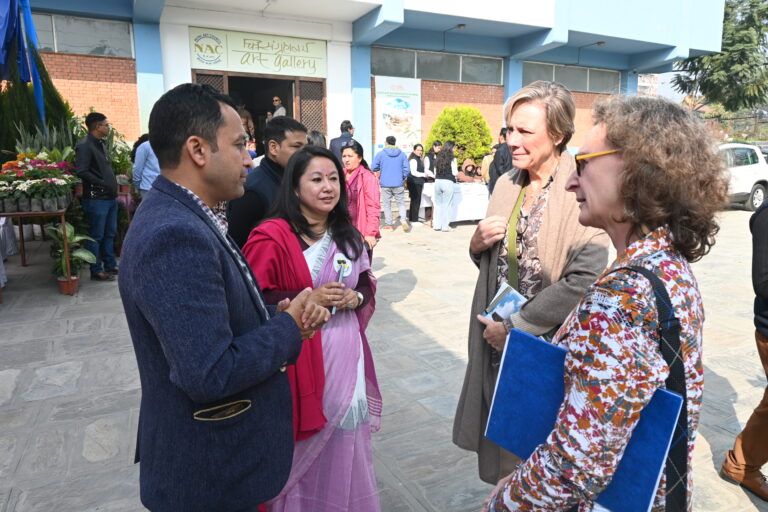
What is the Roots of Circularity programme?
Launched in August 2023, the Roots of Circularity programme is a four-year initiative running through July 2027, with a bold mission:
To ignite a systemic shift in Nepali citizens, enterprises, and policies toward the adoption and integration of circular economy principles.
The programme is being implemented across Bagmati and Lumbini Provinces, working with local stakeholders to catalyse change across education, enterprise, civil society, and government.
How is the programme implementing Circular Economy in Nepal?
Empowering entrepreneurs for circular innovation
At the heart of RoC is a deep investment in micro, small, and medium enterprises (MSMEs) — the economic backbone of Nepal.
To date, the programme has supported 30 MSMEs across three incubation cohorts in Bagmati and Lumbini, offering training, mentorship, and resources tailored to help businesses adopt circular models. In the first completed cohort in Bagmati, all enterprises gained foundational CE knowledge and began incorporating sustainable practices into their operations.
Take the example of Rekriti, an upcycling brand that transforms discarded textiles into high-utility bags. Through RoC, the team realised that while their mission was rooted in circularity, they hadn’t yet developed a full plan to close the loop in product design and delivery. The programme challenged them to reflect on how collaboration, resource optimisation, and intentional design could unlock greater circular impact.
“We learned that circularity is not a product — it’s a system,” shared Rekriti’s team. “Just like sustainability isn’t just about biodegradable materials, circularity means optimizing environmental and social value at every step of the business.”
Through peer exchange and guided learning, entrepreneurs like Rekriti are moving from intention to implementation and redefining what responsible business looks like in Nepal.
Mainstreaming circularity in education
To secure long-term change, RoC is embedding circular economy thinking into Nepal’s formal education system, from secondary schools to higher education.
CE concepts are now part of the Grade 9 and 10 curricula, and a dedicated Grade 9 textbook has been finalized. At the university level, the programme has supported the integration of circular content into master’s programmes and partnered with several institutions to pilot CE curricula.
This foundational work ensures that future generations will be equipped not just with knowledge, but with the values and skills needed to lead Nepal’s sustainable future.

Raising awareness and changing mindsets
Widespread change requires public buy-in and that starts with awareness.
RoC has already reached over 150,000 people through targeted social media campaigns and community events. It has also invested in media capacity-building, training journalists to accurately and compellingly report on circular economy themes. As a result, several in-depth articles on CE have been published, helping shape a more informed public narrative around sustainability in Nepal.
Building alliances and strengthening policy
No transformation happens in isolation. That’s why RoC is focused on strengthening partnerships across government, civil society, and the private sector.
The programme has laid the foundation for a Circular Economy Alliance to chart a collaborative path forward. Through strategic convening and shared resources, the Alliance aims to align efforts and build momentum for policy coherence at the local, provincial, and national levels. At this stage, the Alliance includes nine founding members — among them several EU-affiliated civil society organisations.

The road ahead
Nepal’s journey toward a circular economy is just beginning but it is already gaining ground through entrepreneurship, education, public engagement, and policy reform.
The Roots of Circularity programme proves that when communities, businesses, and institutions work together, the circular economy is an actionable, inclusive, and regenerative path forward. With continued investment, collaboration, and innovation, Nepal has the opportunity to thrive sustainably — now and for generations to come.
In a world facing urgent environmental challenges, the circular economy (CE) offers a hopeful alternative to the traditional “take-make-waste” model. Instead of extracting finite resources, producing goods, and discarding them after use, a circular economy is designed to reuse, regenerate, and recycle materials in a continuous loop. It promotes sustainable consumption, encourages eco-friendly innovation, and minimises waste.
For Nepal, the shift toward circularity is not just a sustainability strategy, it’s a path to economic resilience, green job creation, and stronger environmental stewardship. As a country rich in natural beauty but vulnerable to climate change and resource scarcity, Nepal has much to gain by embracing systems that conserve resources, reduce environmental pressure, and empower communities.
This is where the Roots of Circularity (RoC) programme comes in.
